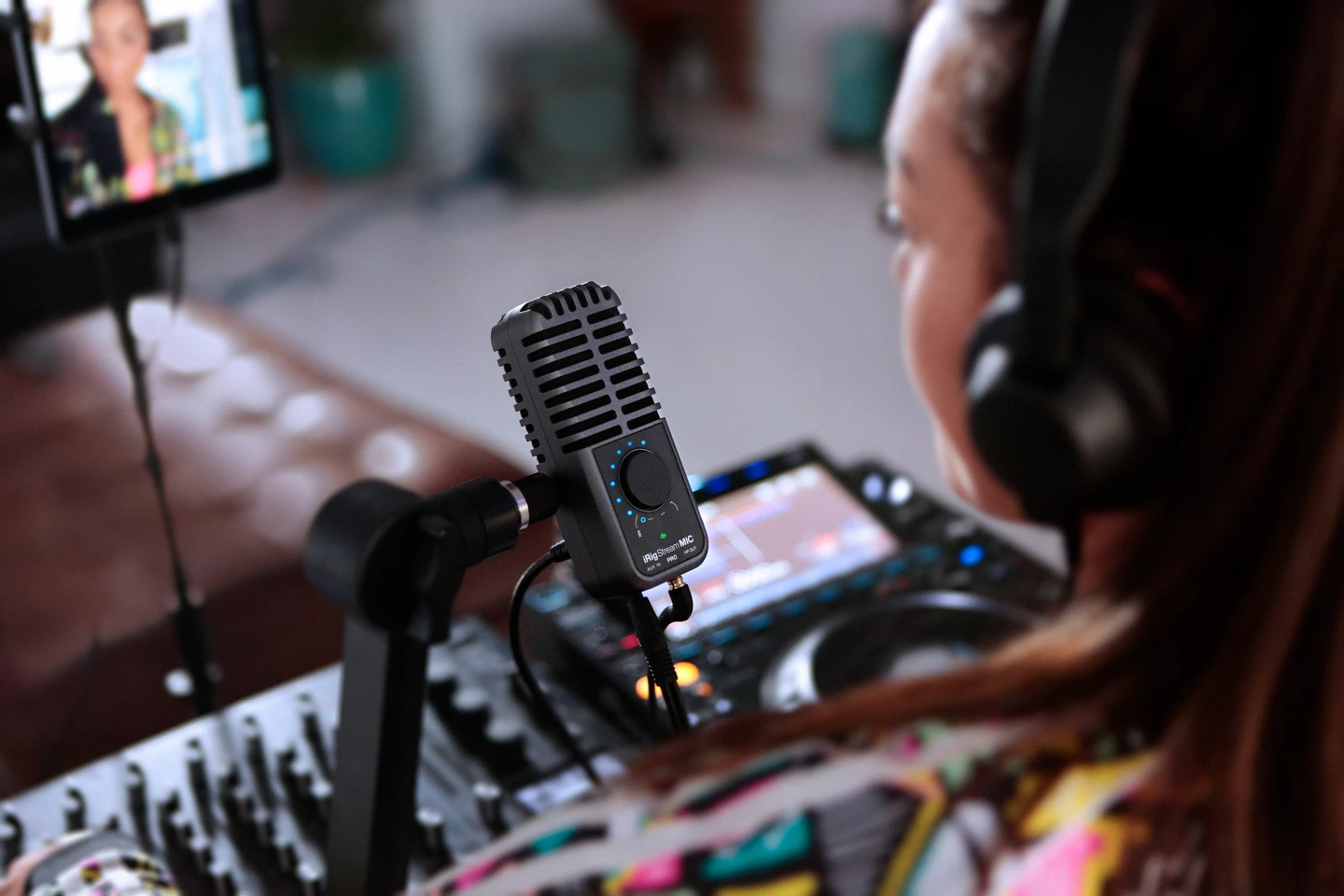IK Multimedia's iRig range has included microphones and audio interfaces in the past, but now the company has launched one device that combines the two, claiming that the iRig Stream Mic Pro is "virtually an entire studio setup in one elegant, compact design that can be easily taken anywhere."
Aimed at streamers, musicians, podcasters, or anyone looking to record or stream their voice/music, the iRig Stream Mic Pro marries a multi-pattern microphone with a stereo/four-channel audio interface for music and content creation.
The microphone boasts dual gold-sputtered half-inch condenser capsules for the promise of "crisp, clear and detailed" sound. Content creators are able to choose between cardoid, figure eight, omnidirectional or stereo pickup patterns, and benefit from adjustable gain and a selectable high-pass filter.
The next part of the IK mashup is the stereo/four-channel audio interface built around 24-bit/96-kHz converters that's compatible with iPhone, iPad, Android, Mac and PC. In addition to connecting to such devices, users can directly cable media players, keyboards, drum machines, mixers, turntables and soundboards to the iRig Stream Mic Pro via a 3.5-mm stereo input.

IK's Loopback+ technology is cooked in, allowing folks to add background music or effects even if apps don't allow such things – for example, you could dial in some cool tunes from a phone or tablet to the livestream, while also routing the microphone signal to a separate app to add effects such as reverb, EQ or noise reduction to the vocal before sending the whole shebang onto Instagram or TikTok.
Out of the box, the mic/interface combo pre-mixes multiple audio sources down to a stereo track but can be switched to multichannel mode for four channels of audio that can be sent to music production software or apps like GarageBand.
All of the onboard features are controlled using a single live-optimized knob that's surrounded by LED level indicators for headphone-free monitoring, and can be held down to temporarily mute the audio. Finally, the unit can be powered by an optional DC supply or via the host device it's plugged into.
The iRig Stream Mic Pro is available now for US$169.99, and comes bundled with a table stand and a bunch of cables and adapters, plus iRig Record 3 LE, MixBox CS and MixBox SE software.
Product page: iRig Stream Mic Pro









